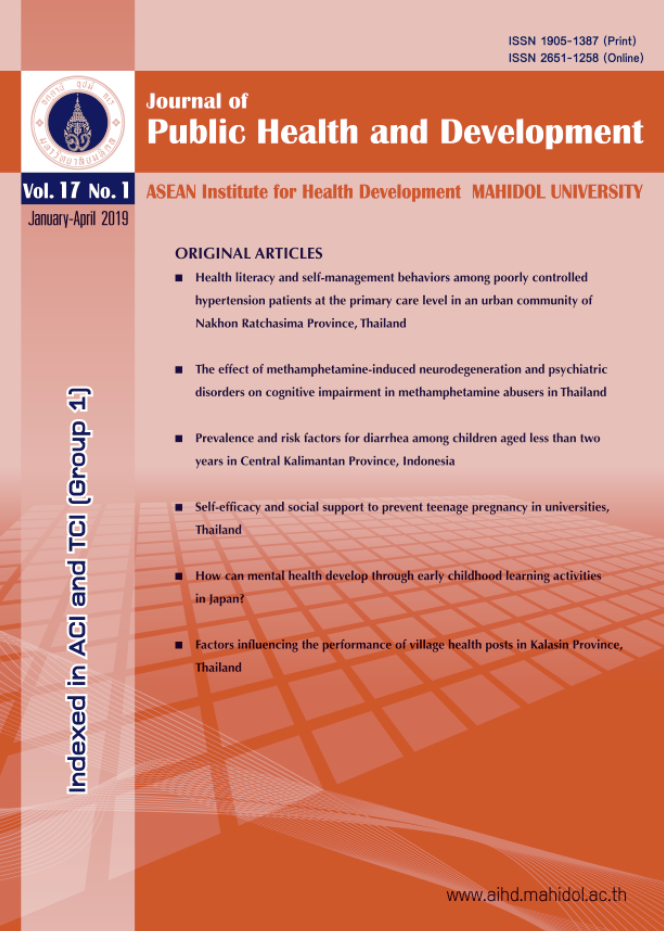Self-efficacy and social support to prevent teenage pregnancy in universities, Thailand
Main Article Content
Abstract
Female teenage who have low self-efficacy and social support may experience higher rates of pregnancy. This study aimed at examining factors associated with preventing the teenage pregnancy among female teenagers in two selected universities, Thailand. The research designed was a cross-sectional study. A multistage random sampling was used to recruit 438 female teenagers in their first to fourth year of undergraduate studies, not currently pregnant from 18 faculties. Data were collected during January to June 2018 by using a self-administered questionnaire to assess self-efficacy to prevent teenage pregnancy, social support to prevent teenage pregnancy, social influence, and behavior to prevent teenage pregnancy. Descriptive statistics, and multiple logistic regression were used for data analysis.
Nearly half of the respondents had sexual intercourse, poor self-efficacy to prevent teenage pregnancy, and inappropriate behavior to prevent teenage pregnancy. In opposite, a half of the respondents had high social support to prevent teenage pregnancy. Factors statistically significantly associated with preventing the teenage pregnancy were the year of study, current residence types, previous sexual intercourse in vaginal and score of self-efficacy to prevent teenage pregnancy. The fourth year female teenagers were 1.97 times more likely to have an inappropriate behavior to prevent teenage pregnancy compared to the first year (Adj. OR=1.97, 95% CI=1.12-3.44). The female teenagers who stayed with friend/ boyfriend/ alone tended to have an inappropriate behavior to prevent teenage pregnancy 1.57 times than those staying with families (Adj. OR=1.57, 95% CI=1.04-2.36). The female teenagers who had previous sexual intercourse were 3.64 times more likely to have an inappropriate behavior to prevent teenage pregnancy than those who did not (Adj. OR=3.64, 95% CI=2.36-5.58). When the score of self-efficacy to prevent teenage pregnancy increased one point, female teenagers were less likely to have an inappropriate behavior to prevent pregnancy (Adj. OR=0.97, 95% CI=0.95-0.99).
This study results lead to suggest that providing useful information for planning activities to increase selfefficacy and social support among female teenagers in universities will prevent unwanted teenage pregnancy.


